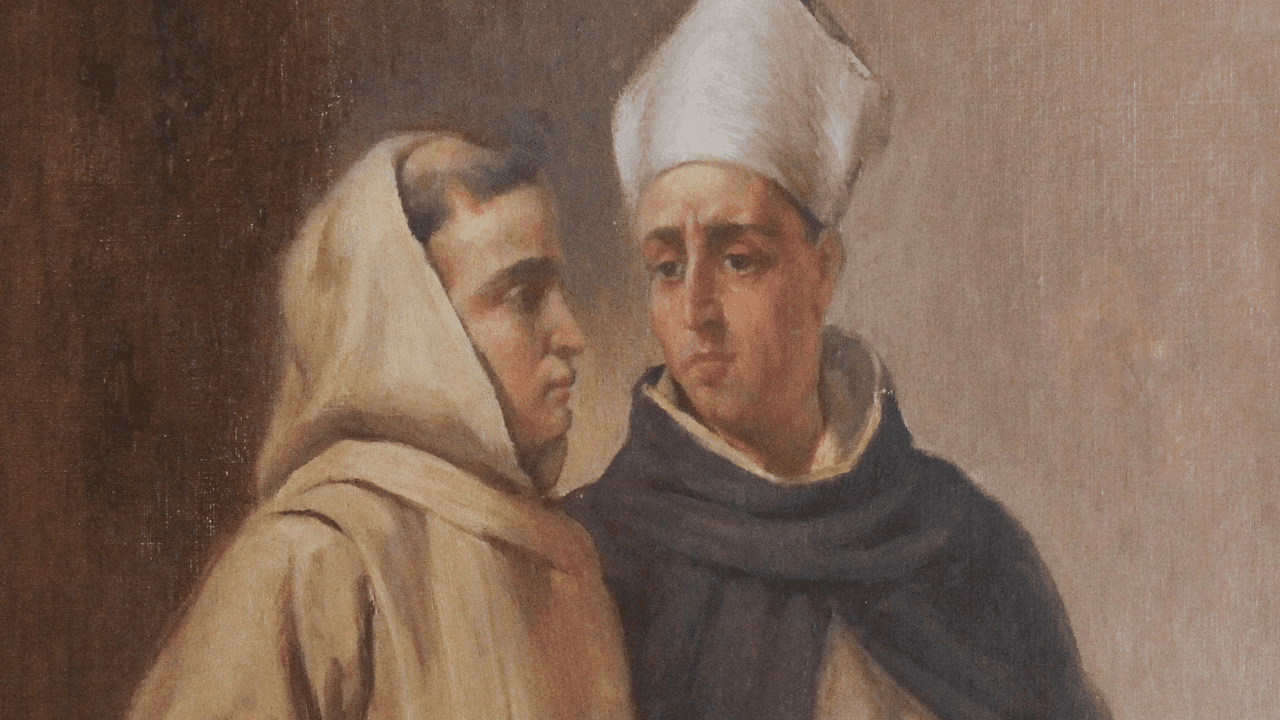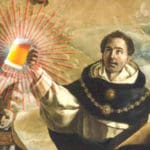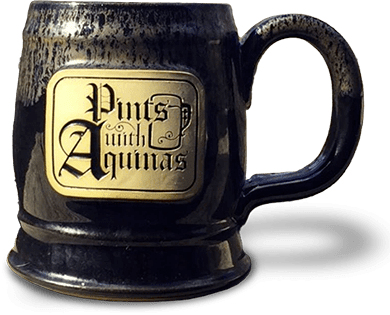The teachings of St. Thomas Aquinas hold a preeminent place in Catholic theology — some would say third only to Scripture and the Church Fathers. Dozens of popes have viewed him as a model of the faithful, rational theologian.
Where did St. Thomas derive his amazing insights? Obviously, God gifted him with an incredible intellect. Scripture and Aristotle’s writings played a huge role. But we also need to look to the Angelic Doctor’s little-known teacher, who was also a saint.
St. Albert the Great (c. 1206–80) was a German Dominican friar and theologian who possessed a sharp mind that rivaled his more famous student. He left behind writings that share St. Thomas’ inclination to use the power of the mind — along with a devout faith — to understand the natural world and God’s divine revelation.
Here are a few facts about St. Albert the Great.
The Blessed Mother purportedly appeared to him — more than once!
The first time, she asked him to join the Dominican Order. The second time, he was struggling with theological studies and resolved to leave the order. After gently reprimanding him for not seeking her help, she opened his mind to better comprehend the mysteries of theology.
He was among the first Dominicans.
St. Dominic founded the Order of Preachers — more popularly known as the Dominicans — in 1215. St. Albert joined the order in 1223 and soon became one of its preeminent teachers. In 1254, he was elected provincial of the Dominican Order in Germany.
He was among the first to make use of Aristotle’s writings.
It’s well-known that St. Thomas used Aristotle to show the rational foundation of Catholic beliefs. But St. Albert was the one who pioneered this practice at a time when many in the Church held the ancient Greek philosopher in suspicion. St. Albert also examined the works of Muslim thinkers, even making use of their ideas if they were compatible with the Catholic faith.
Science was one of his greatest strengths.
St. Albert studied and wrote about birds, mammals, minerals, astronomy, and many other subjects. He pursued careful observation and experimentation to learn about God’s creations. Among his scientific contributions was the discovery of the element arsenic.
His feast day is Nov. 15.
Pope Pius XI proclaimed St. Albert a saint and doctor of the church in 1931. In 1941, Pope Pius XII proclaimed him the patron saint of natural scientists.
Many of St. Albert the Great’s works are available, including “On Union with God,” “Man and the Beasts,” and “On the Body of the Lord.”
Go check them out!







